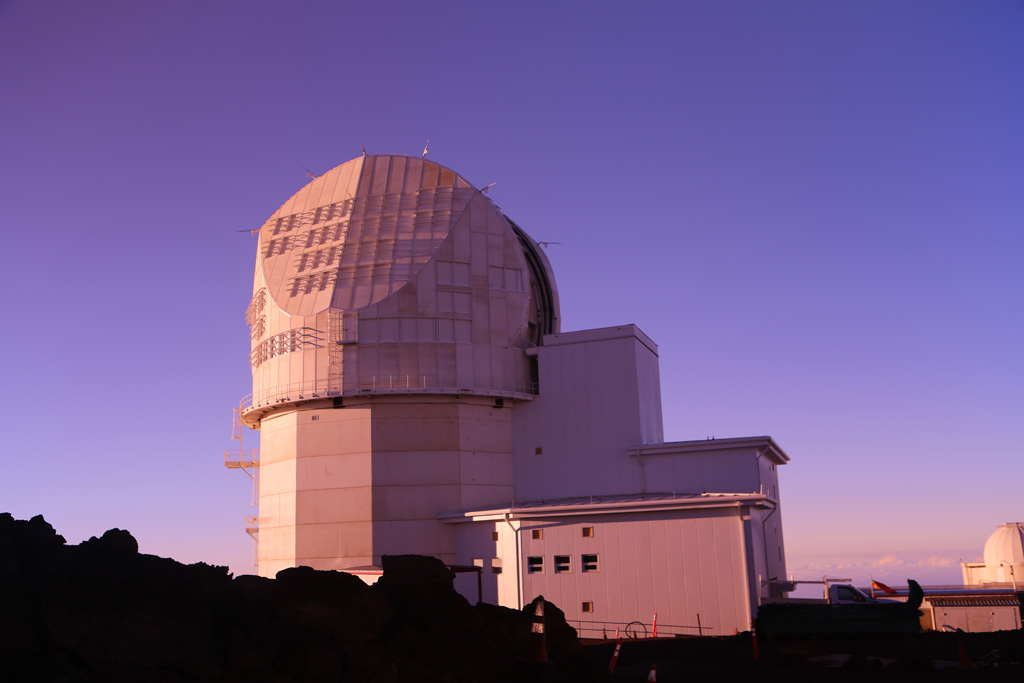The Daniel K. Inouye Solar Telescope (DKIST) is on schedule for full operations in June 2020. Situated at 10,000 feet of elevation atop Haleakala, the DKIST will be the most advanced ground-based solar observatory in the world. With more than 20 institutions collaborating internationally, it is about to revolutionize the world of solar astronomy. “We are pointing a four-meter (13 foot) telescope at the Sun for the very first time, which will challenge the science community to take their understanding to a whole new level,” said Dr. Thomas Rimmele, DKIST Project Director, National Solar Observatory (NSO). “When combined with a special adaptive optics system, the DKIST’s primary mirror will produce high-speed measurements to examine the Sun’s surface in stunning detail!”
The site on Haleakala was selected, out of a global search, for its clear daytime atmospheric seeing conditions. Once operational, the DKIST will allow astronomers to measure the magnetic fields that drive space weather events such as solar flares and coronal mass ejections. “Understanding the behavior of the Sun’s magnetic fields is vital,” Rimmele explained. “Monitoring space weather is essential as our society increasingly relies on electronics technology that is susceptible to damage from these large space events. DKIST will help us better deal with threats of outages.”
DKIST Project Manager Dr. Joseph McMullin of NSO provided the latest updates. “The external building has been completed, with the integration of major telescope systems underway. This includes the telescope mount assembly and the rotating instrument laboratory,” McMullin noted. “The optical systems, and the primary mirror, the most critical element of the telescope, have met their challenging, state-of-the-art specifications and are undergoing testing.”
DKIST’s open data policy will provide the general public access to unique data resources compiled by the best engineers and scientists in the world. “In fact, the DKIST will bring more jobs and educational outreach opportunities to Maui,” Rimmele added. “The scientific impact from the DKIST, for all of humanity, is immense. The entire global community will be looking to Maui for this extraordinary science!”
Permitting us to measure the magnetic fields in the solar atmosphere for the very first time, the DKIST will fill in many gaps of our knowledge of the Sun and its magnetic activities.
Dr. Thomas Rimmele, DKIST Project Director, National Solar Observatory

